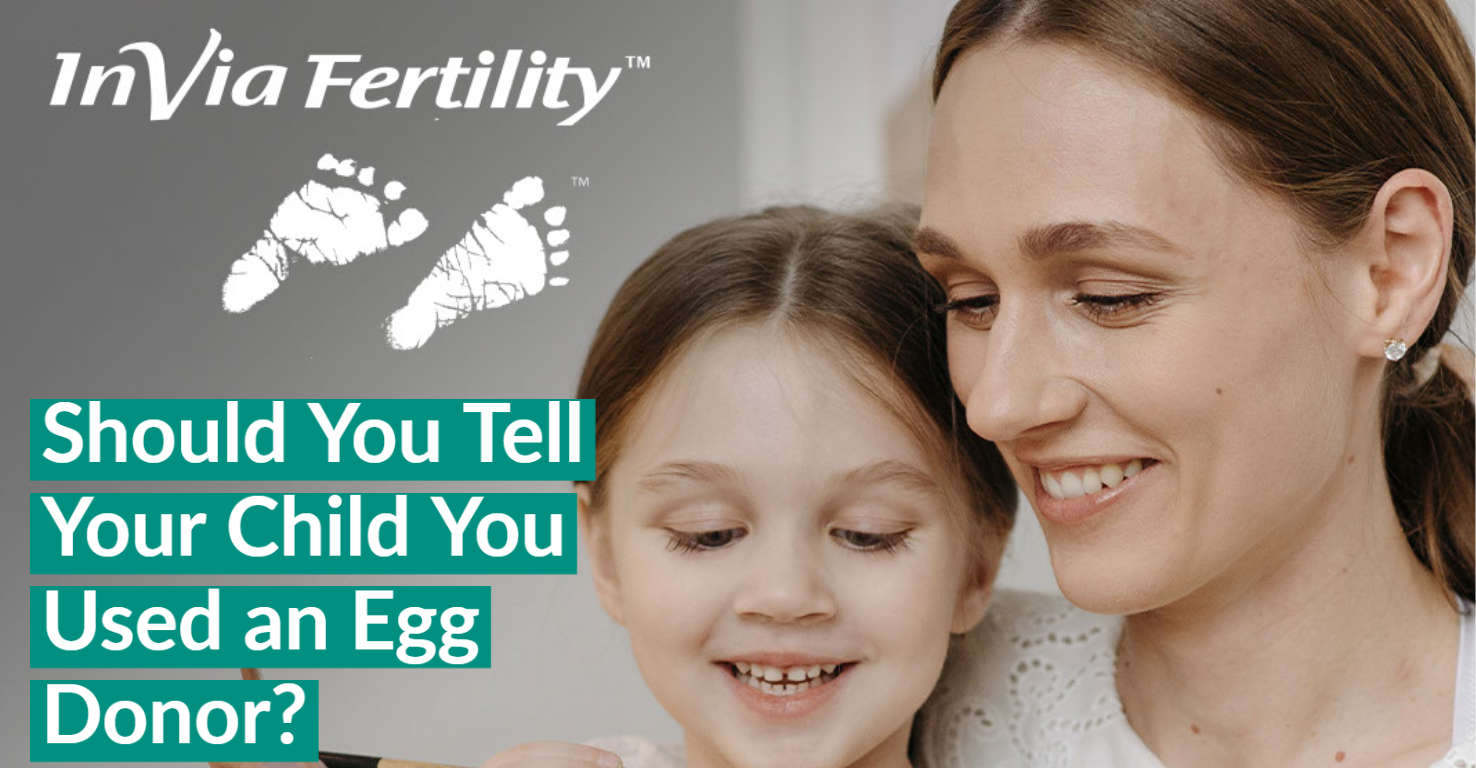We are experiencing a very high volume of calls and messages and ask for your patience. We will answer your portal messages within 48 hours.
We are experiencing a very high volume of calls and messages and ask for your patience. We will answer your portal messages within 48 hours.

 A recent study showed the majority of parents of egg donor conceived children intend to tell their children – but many put off that conversation.
A recent study showed the majority of parents of egg donor conceived children intend to tell their children – but many put off that conversation.
If you've used an egg donor, there are many things to consider when deciding whether and how to tell your child how they were conceived. In this blog, I'll discuss the main pros and cons of telling your child, and some key considerations about when to tell them.
When parents were surveyed about why they planned to disclose the information to their their children, their top reasons included:
Parents who planned not to tell their child about using an egg donor cited reasons including:
Reasons for delayed disclosure included:
The role of mental health professionals and their assistance during the process seems to be directly related to the disclosure of this information to children born from an egg donation. Of the families in this study that had disclosed to their child(ren), 50% had sought professional mental health assistance during the process and all reported that it had been beneficial to their decision-making. Only 11% of the families who delayed disclosure had sought emotional support and assistance from a mental health professional.
There is no right or wrong answer in whether or not to disclose. What is most important if you've had a child via egg donor is that you've considered all options and possible outcomes and have made the decision that is best for you. Help from a mental health professional in making this decision is strongly advised. If you opt not to tell your child, it's recommended that you see your mental health professional when your child reaches ages 3, 6 and 9 years of age. It's possible that one or both parents might be questioning the decision, and speaking with a neutral third party gives you the chance to keep evaluating and communicating to do what's best for your family.
To work with a fertility clinic that has a large selection of medically screened egg donors and a high success rate, make an appointment at one of InVia’s four Chicago area fertility clinics.

Entire Website © 2003 - 2020
Karande and Associates d/b/a InVia
Fertility Specialists
